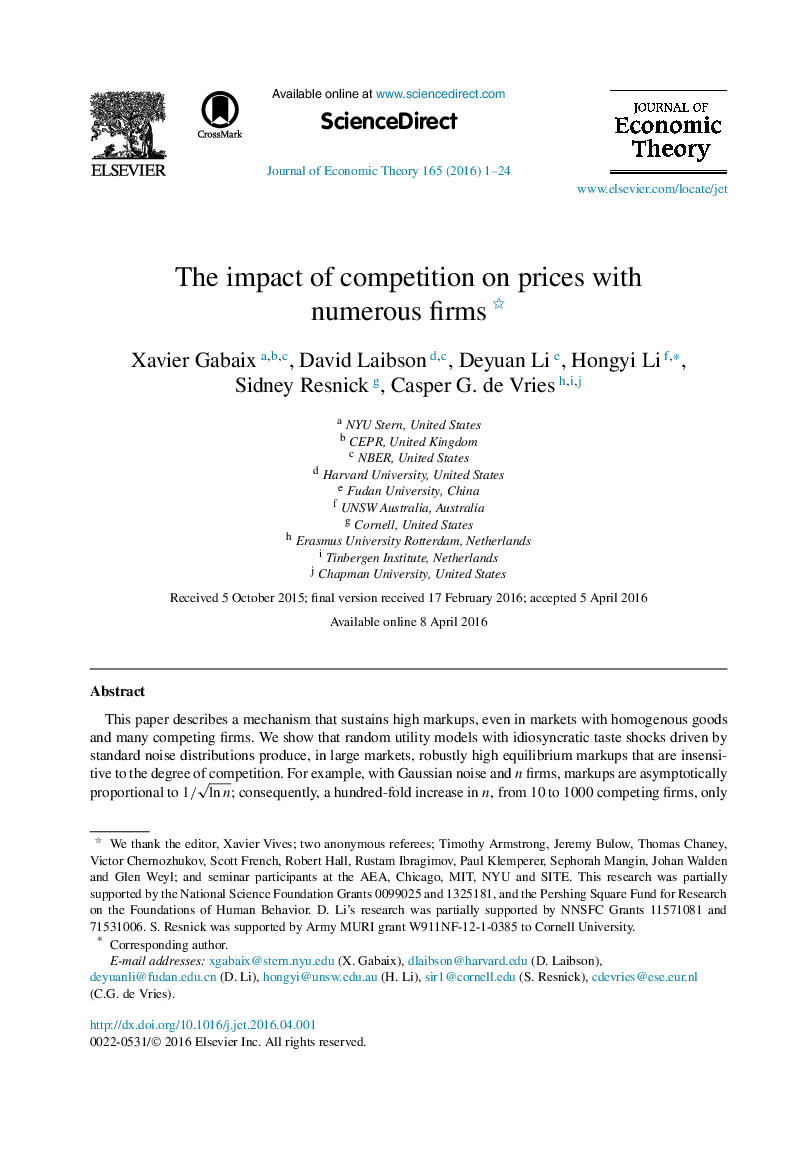| Article ID | Journal | Published Year | Pages | File Type |
|---|---|---|---|---|
| 7359375 | Journal of Economic Theory | 2016 | 24 Pages |
Abstract
This paper describes a mechanism that sustains high markups, even in markets with homogenous goods and many competing firms. We show that random utility models with idiosyncratic taste shocks driven by standard noise distributions produce, in large markets, robustly high equilibrium markups that are insensitive to the degree of competition. For example, with Gaussian noise and n firms, markups are asymptotically proportional to 1/lnâ¡n; consequently, a hundred-fold increase in n, from 10 to 1000 competing firms, only halves the equilibrium markup. The elasticity of the markup with respect to n asymptotically equals the distribution's tail exponent from extreme value theory. Only noise distributions with very thin tails have negative asymptotic markup elasticities.
Keywords
Related Topics
Social Sciences and Humanities
Economics, Econometrics and Finance
Economics and Econometrics
Authors
Xavier Gabaix, David Laibson, Deyuan Li, Hongyi Li, Sidney Resnick, Casper G. de Vries,
